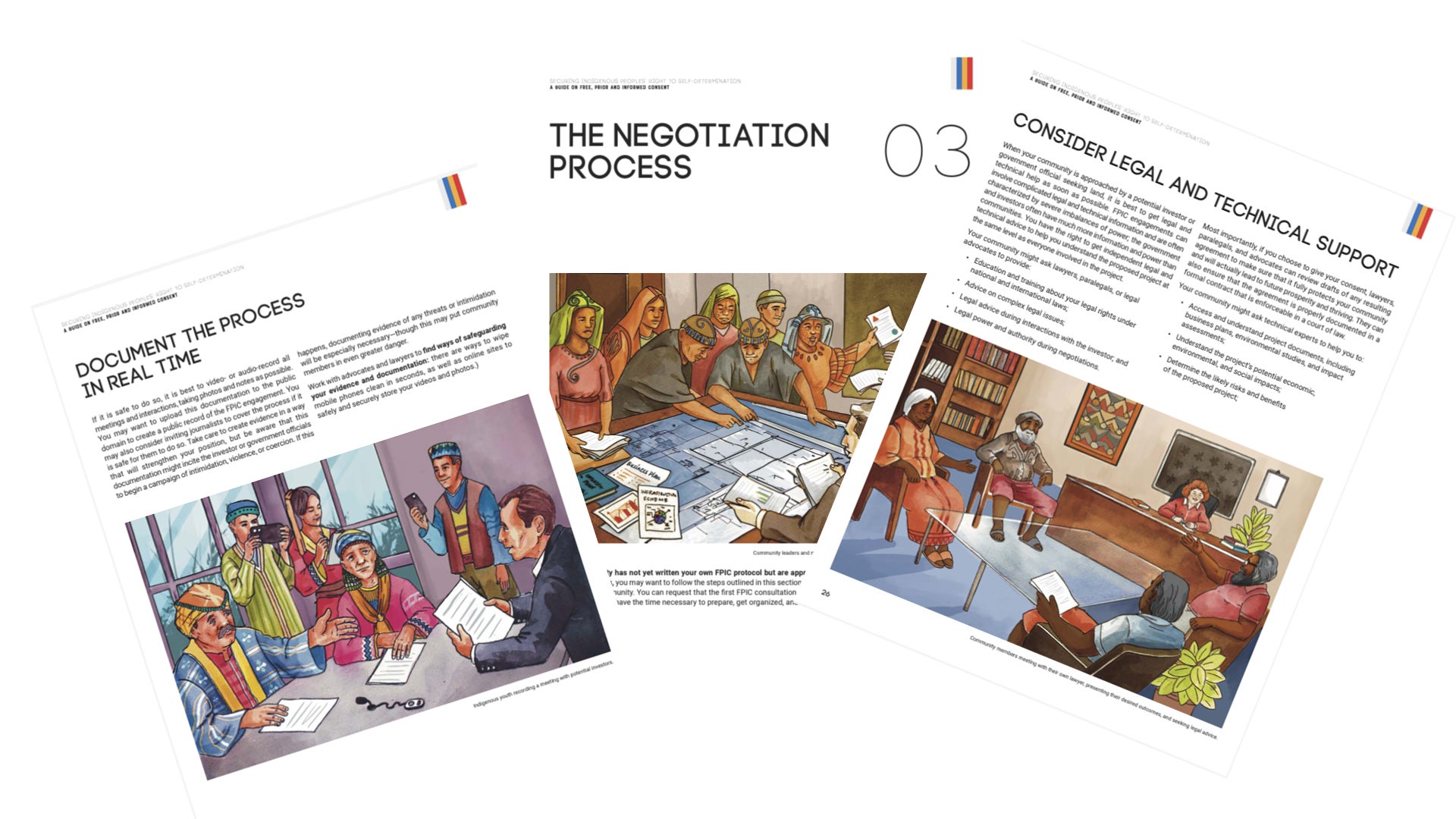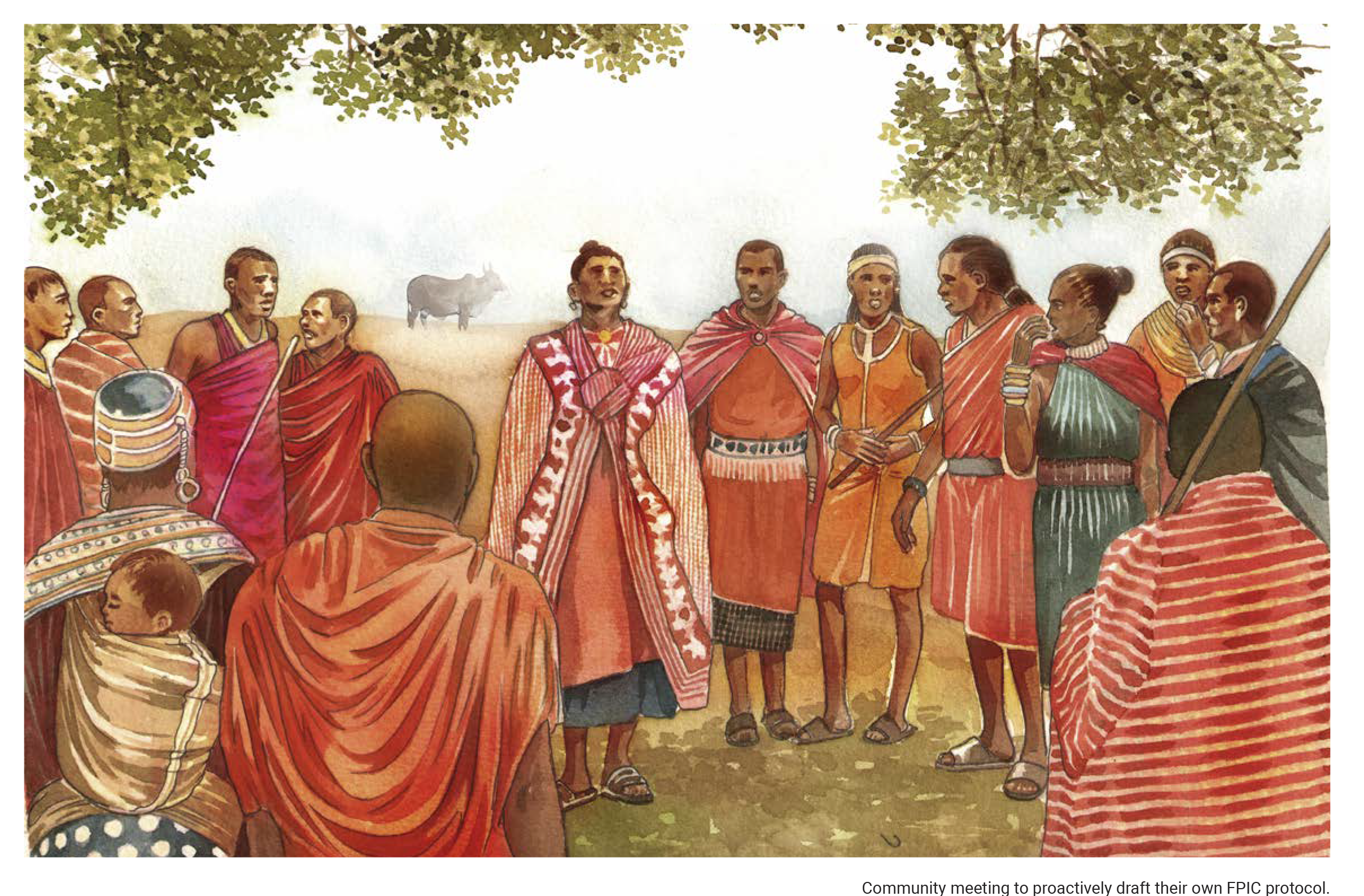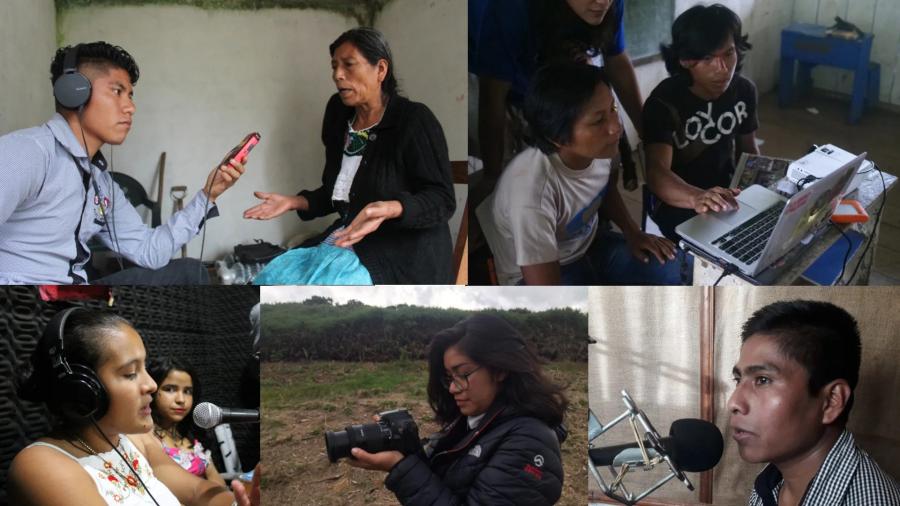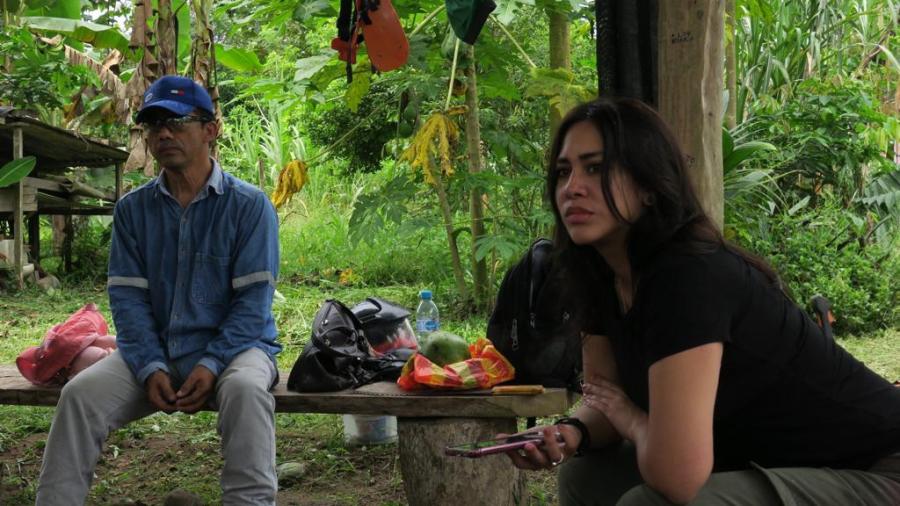
“Free, Prior and Informed Consent (FPIC) is the first line of defense when investors and government officials seek to develop projects that may affect Indigenous communities, lands, territories, and resources. For this reason, Indigenous Peoples must be prepared to engage with FPIC from a fully informed, proactive stance. Indigenous Peoples must have their FPIC protocols ready, and be ready to lead engagement around FPIC on their terms.” –Securing Indigenous Peoples' Right to Self-Determination: A Guide on Free, Prior and Informed Consent
Free, Prior and Informed Consent (FPIC) – Indigenous Peoples’ right to give or withhold consent on any activities that affect their lands, resources, and communities – flows from Indigenous Peoples’ right to self-determination. As such, FPIC encompasses and protects all rights of Indigenous Peoples. This includes land rights, collective rights, participatory rights, cultural rights, and food and water security rights, as well as the rights to language, education, Traditional Knowledge, intellectual property, and more.
While minimum standards for FPIC are enumerated in the UN Declaration on the Rights of Indigenous Peoples, the full spectrum of considerations and protocols to secure FPIC must be articulated by the impacted Indigenous Peoples themselves–something that is often misunderstood or ignored by companies and nations that approve projects with negative impacts on Indigenous communities.
To support Indigenous leaders to develop protocols and processes for their FPIC priorities, both within their communities and with external parties, Cultural Survival and First Peoples Worldwide have published Securing Indigenous Peoples' Right to Self-Determination: A Guide on Free, Prior and Informed Consent. We are excited to release this guide on Indigenous Peoples Day.
Download the guide here. Em Português. En français. En español. На русском. En náhuatl. En mapuzugun. In Kiswahili.

The 60-page illustrated guide collates the extensive considerations that Indigenous leaders can face when considering how to engage on a project that impacts them. The guide is organized to help Indigenous communities: 1) understand the right and principles of FPIC within the framework of nation-to-nation and corporate engagements; 2) prepare in advance of engagements related to their FPIC; 3) work through the negotiation process with external parties; and 4) consider steps after a decision is reached about FPIC, whether the project is approved or not.
The guide draws from resources, case studies, legal and legislative precedent, and first-hand experiences of Indigenous communities around the globe. In addition to Cultural Survival and First Peoples Worldwide, two Indigenous-led organizations who have for decades worked to further Indigenous Peoples’ rights, the guide was developed with support from participants of the Securing Indigenous Peoples' Rights in the Green Economy (SIRGE) Coalition, which comprises Indigenous leaders from the UN’s seven geographical regions.
Galina Angarova (Buryat), Executive Director, Cultural Survival: “As sovereign, self-governing bodies, Indigenous Peoples can best articulate their protocols for Free, Prior and Informed Consent as guided by their systems, values, traditions, and visions for future generations. As more and more Indigenous Peoples forward their own FPIC processes and protocols to assert their rights, this guide collates many of the questions, considerations, and actions that Indigenous Peoples have made with their priorities and activation of FPIC. This guide reflects many of the lived experiences and real world considerations that Indigenous Peoples face, and we are grateful for the contributions and work Indigenous leaders around the world have made to this guide and to their communities.”
Kate Finn (Osage), Executive Director, First Peoples Worldwide: “Indigenous leaders know their communities best and can best articulate what impacts mean for their people and the places integral to their culture and subsistence. Therefore it is imperative that Indigenous Peoples have a seat at the decision-making table whether beginning discussions with their communities to define FPIC processes or engaging with a company to secure Indigenous consent on projects. This guide helps Indigenous leaders prepare for whatever challenges, opportunities, and outcomes that occur so that they can maximize economic, social and cultural wellbeing to create a thriving Indigenous community for generations to come.”

“This next decade must be defined by respect for Indigenous leadership, in part through the integration of Indigenous FPIC protocols in private and public sectors around the world. We hope this guide provides a starting point for considerations to articulate your priorities around FPIC within and beyond your communities.” –Securing Indigenous Peoples' Right to Self-Determination: A Guide on Free, Prior and Informed Consent
Translations into Spanish, Russian, Portuguese, and French, as well as several Indigenous languages, will be available in the next few months.
Download the guide here.
Em Português.
En français.
En español.
На русском



